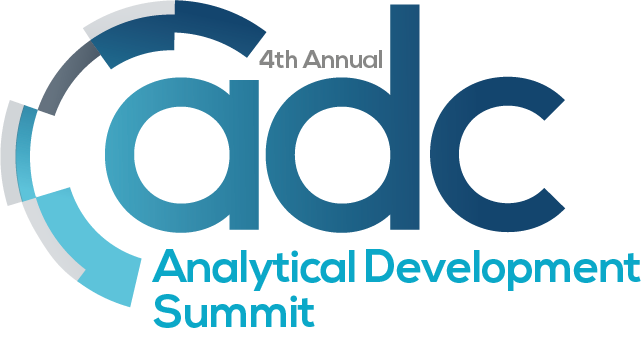
8:00 Check-In & Coffee
8:50 am Chairs Opening Remarks
Optimizing ADC Homogeneity & Performance: Advanced Approaches for DAR Distribution & Physicochemical Characterization
9:00 am Analytical Development & Challenges to Support High-DAR ADCs
Synopsis
- Developing a robust analytical control strategy to monitor the DAR and drug distribution for high-DAR ADCs
- Troubleshooting and identifying limitations with the DAR release method
- Assessing an optimized method and implementation strategy for late-stage and commercial needs
9:30 am Analytical Challenges in ADC: From Lab to Plant
Synopsis
- Determining the specification for starting material
- The purpose and design of in-process control (IPC) method
- Impurities control in the final material
10:00 Morning Break & Poster Session
10:45 am Defining Profile Changes in Charge Variants in Late Stage ADC Development – Gaining a Further Understanding of the Correlation to Safety & Efficacy
Synopsis
- Examining how changes in charge variants affect ADC stability, binding affinity, and overall functionality, focusing on implications for clinical performance
- Analyzing case study data to understand the relationship between specific charge variant profiles and their impact on safety and efficacy, aiming to refine late-stage quality controls
- Discussing advanced analytical methods, such as ion exchange chromatography and capillary electrophoresis, to detect and quantify charge variants with high precision, supporting regulatory expectations for late-stage characterization
11:15 am Roundtable Discussion – Reviewing the Current Analytical Methods for DAR Distribution Assessment – Determining the Value in Use of Different Assays
Synopsis
- Reviewing various methods, including LC-MS, SEC-MALS, and HIC, to assess their strengths and limitations in accurately quantifying DAR distributions in ADCs
- Discussing how different DAR distributions can influence the pharmacokinetics, efficacy, and safety of ADCs, and evaluating the importance of these findings in analytical assessments
- Exploring how to select the most appropriate DAR assessment assays based on stage of development, regulatory requirements, and the need for high-throughput or highresolution data
12:00 Lunch Break & Networking
Optimizing Comparability Studies to Reduce Costs & Demonstrate Equivalence Within ADCs
1:00 pm Designing Comparability Strategies at Different Phases of ADC Development to Refine Assessments
Synopsis
- Identifying critical attributes (e.g., potency, pharmacokinetics, immunogenicity) that should be prioritized at each phase of ADC development to ensure meaningful comparability assessments
- Exploring tailored analytical approaches, such as early-phase screening versus latephase detailed characterization, to balance depth of analysis with project timelines and regulatory needs
- Discussing strategies to manage variations in manufacturing or formulation changes while ensuring consistent comparability results, meeting regulatory expectations for continuity and safety
1:30 pm Roundtable Discussion – Enhancing Relationships with CDMOs & CROs – Selecting Appropriate Vendors for Accelerated ADC Analytical Development
Synopsis
- Balancing internal ADC development and outsourcing with CDMOs and CROs
- Leveraging fast growing ADC vendor network and establishing strong pharma/vendor partnerships
- Considering supply chain logistics for ADCs and key intermediates
- Selecting phase appropriate vendors to accelerate development and approval
Moving Beyond Traditional ADCs: Defining Considerations & Overcoming Challenges of Analytics Required for Next Generation Conjugates
2:15 pm Defining Considerations and Overcoming Challenges of Analytics Required for Next Generation Conjugates
Synopsis
- Developing methods to characterize DAR for dual payload ADCs with DL mass differences of only 10Da
- Optimizing sample preparation and Orbitrap parameters to improve data quality
- Qualifying the method with ADC standards
